News
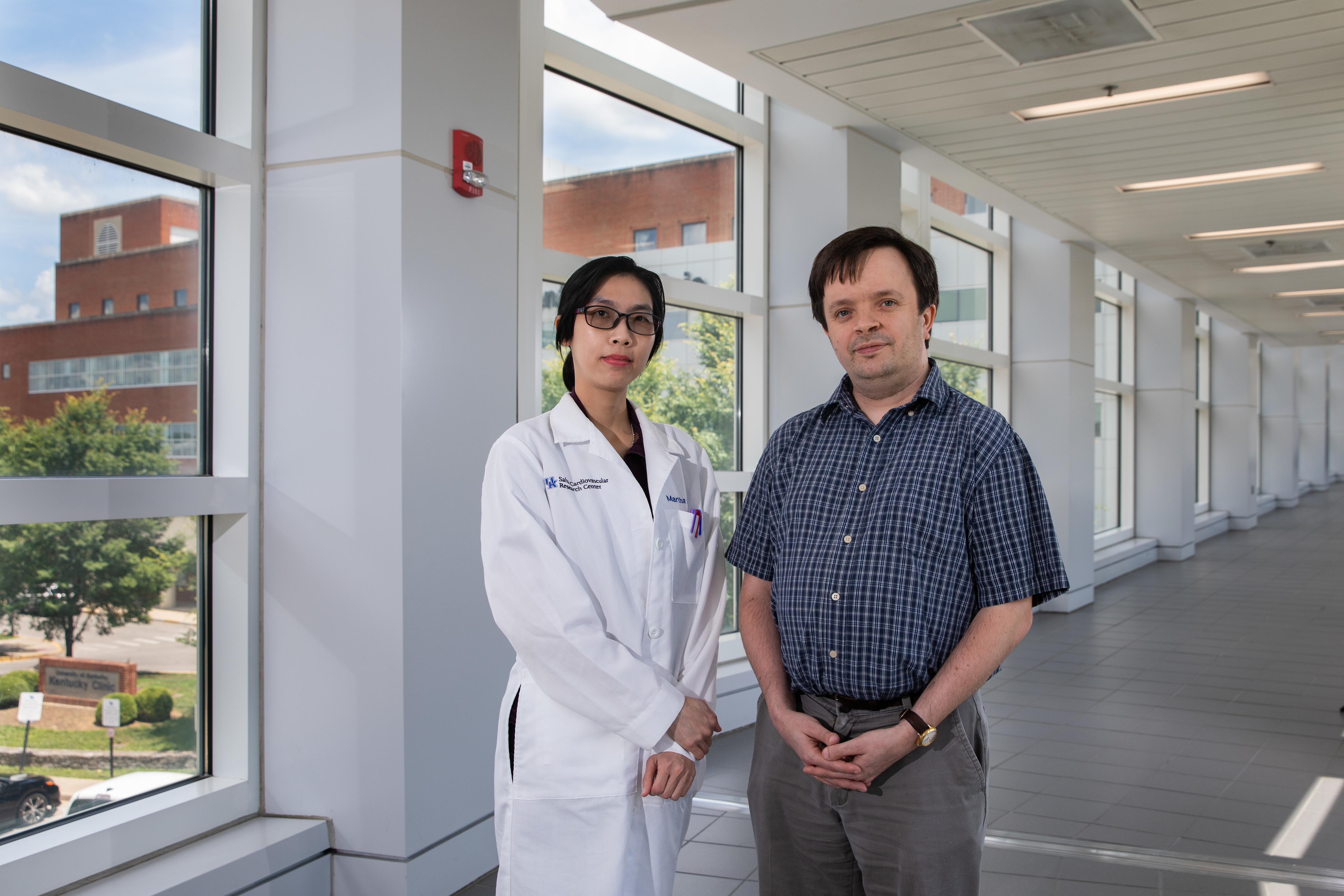
Martha Sim, MD, a graduate student at the College of Medicine, knew it was possible she would witness a pandemic in her lifetime, but she did not expect it to happen so early in her research career. Yet in 2020, COVID-19 spread rapidly across the globe.
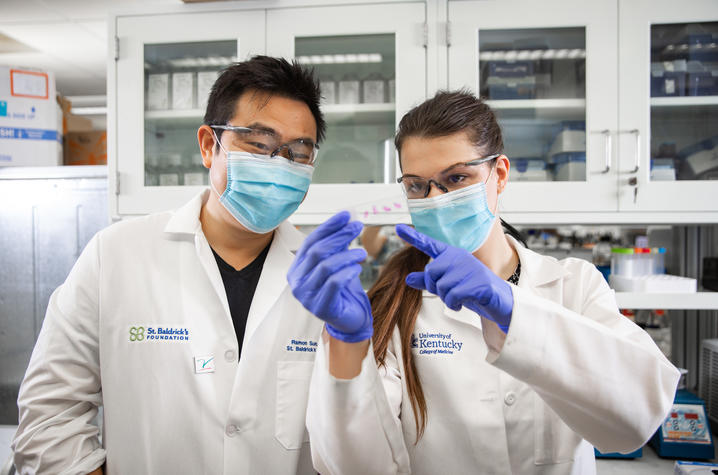
LEXINGTON, Ky. (Dec. 16, 2021) — Using new methodology, University of Kentucky researchers have mapped the variations in sugar chains attached to brain proteins from deceased healthy individuals or individuals with Alzheimer’s disease.
Thus far, no effective treatments for Alzheimer’s disease (AD) are available. New approaches to preventing the progression of this devastating neurological disease are desperately needed.
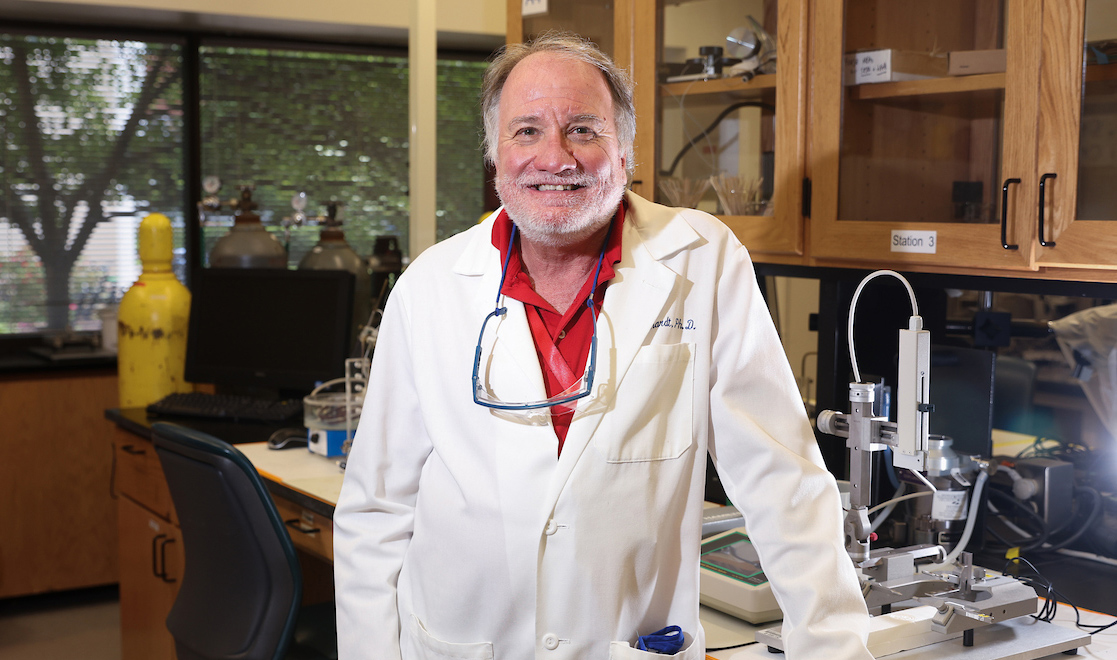
Greg Gerhardt, PhD, is a professor of neuroscience and researcher with the Spinal Cord and Brain Injury Research Center (SCoBIRC) and Brain Restoration Center, as well as advisor for the MD/PhD program. He currently serves as co-principal investigator for the Brain Restoration Alliance in Neurodegeneration (BRAIN). In the following Q&A, Dr. Gerhardt shares more about his current projects.
Q: Why did you want to pursue a career in neuroscience research?
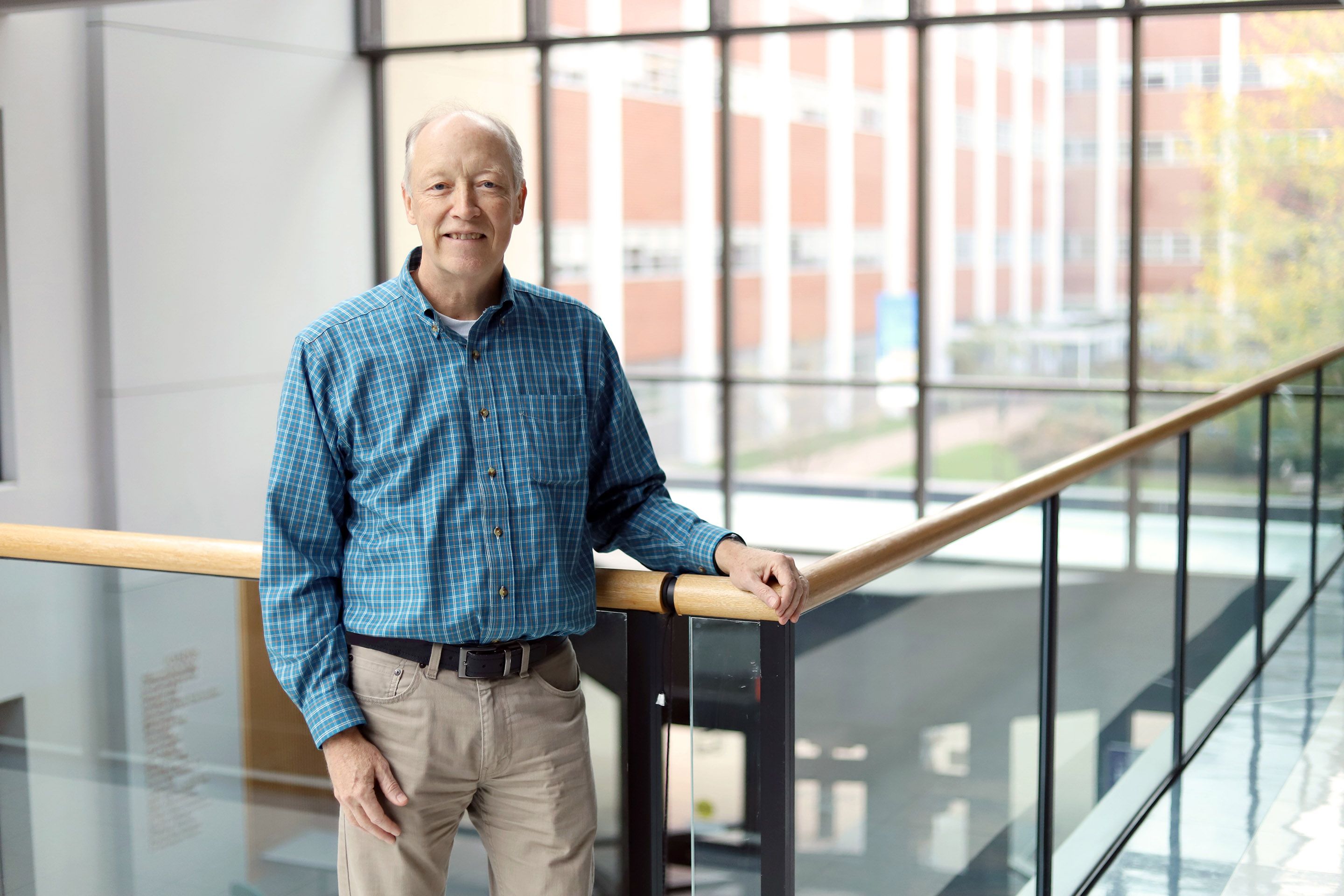
Grant writing is a competitive process. Without the proper resources, staff, or expertise, faculty may struggle in gathering key funding that could benefit future research projects, and ultimately, promote innovative health discoveries.
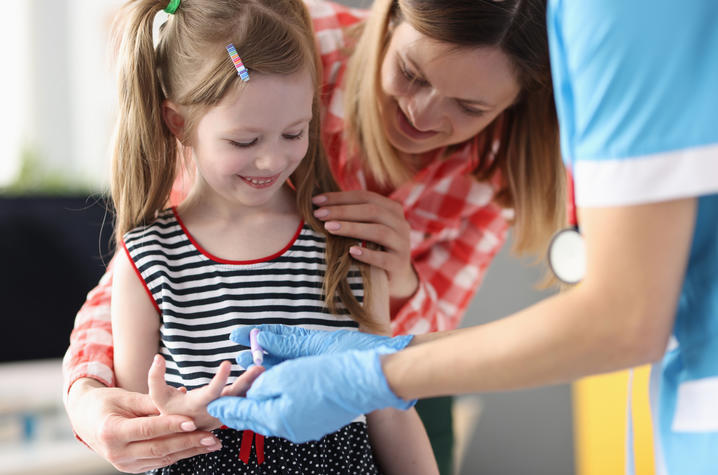
LEXINGTON, Ky. (Nov. 30, 2021) — Recently published research from the University of Kentucky College of Medicine and UK HealthCare Barnstable Brown Diabetes Center found high rates of traumatic exposure and post-traumatic stress disorder (PTSD) symptoms in a group of pediatric patients living with Type 1 diabetes.

By the time she became a faculty member at the UK College of Medicine, Susanne Arnold, MD, was arguably more prepared than anyone to treat Kentuckians and educate future physicians.
She was introduced to the medical field early and was surrounded by it. She recalls taking a preserved human brain to show and tell when she was in grade school (which she jokes wouldn’t happen now, though her classmates thought it was pretty cool). In high school, she shadowed physicians in a clinic, and she gained clinical experience observing autopsies before she even started medical school.
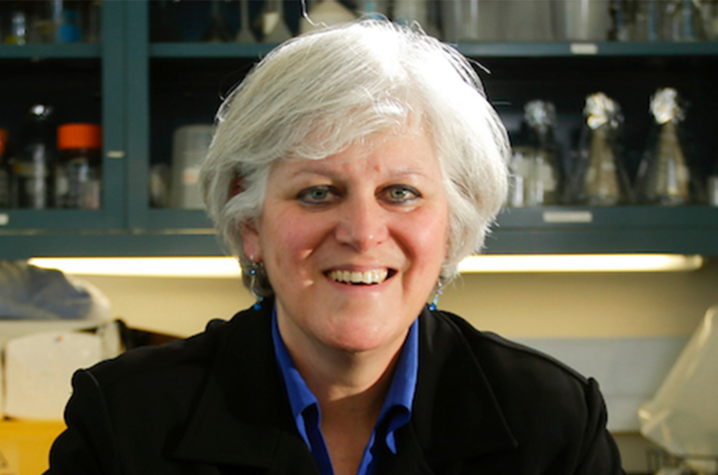
LEXINGTON, Ky. (Nov. 29, 2021) — For this “UK at the Half,” Lisa Cassis, vice president for research at the University of Kentucky, shares how leaders across campus came together to find a path forward for research during the COVID-19 pandemic.

LEXINGTON, Ky. (Nov. 22, 2021) — What makes UK the university of, for and with Kentucky?
The answer is our people.
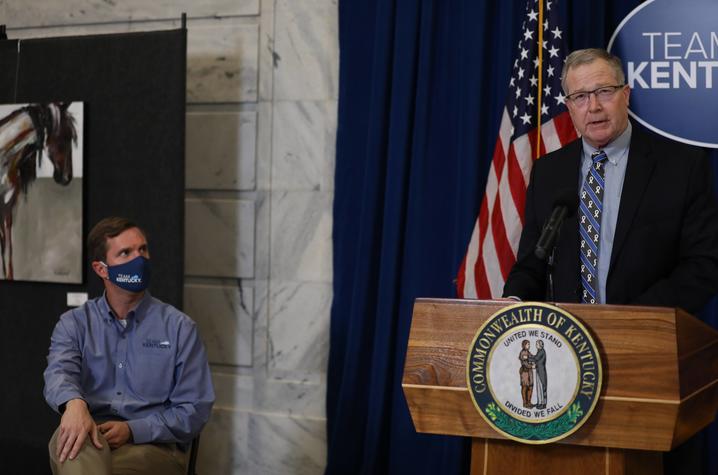
Timothy Mullett, M.D., a University of Kentucky professor of cardiothoracic surgery and the medical director of the UK Markey Cancer Center Affiliate and Research Networks, joined Gov. Andy Beshear and a number of lung cancer advocacy groups at the state Capitol to recognize November as Lung Cancer Awareness Month.
Gov. Beshear encouraged Kentuckians to learn more about lung cancer, its risk factors and screening options.
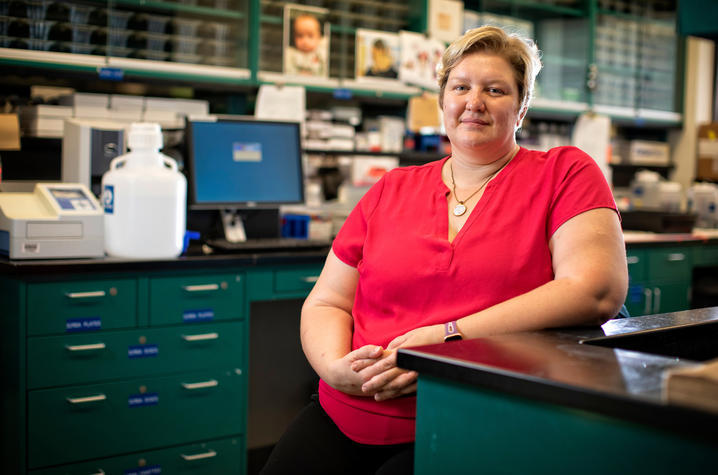
LEXINGTON, Ky. (Nov. 11, 2021) — Researchers at the University of Kentucky’s Sanders-Brown Center on Aging recently received a five-year grant renewal of their MarkVCID program from the National Institutes of Health (NIH). The award total is more than $6 million.
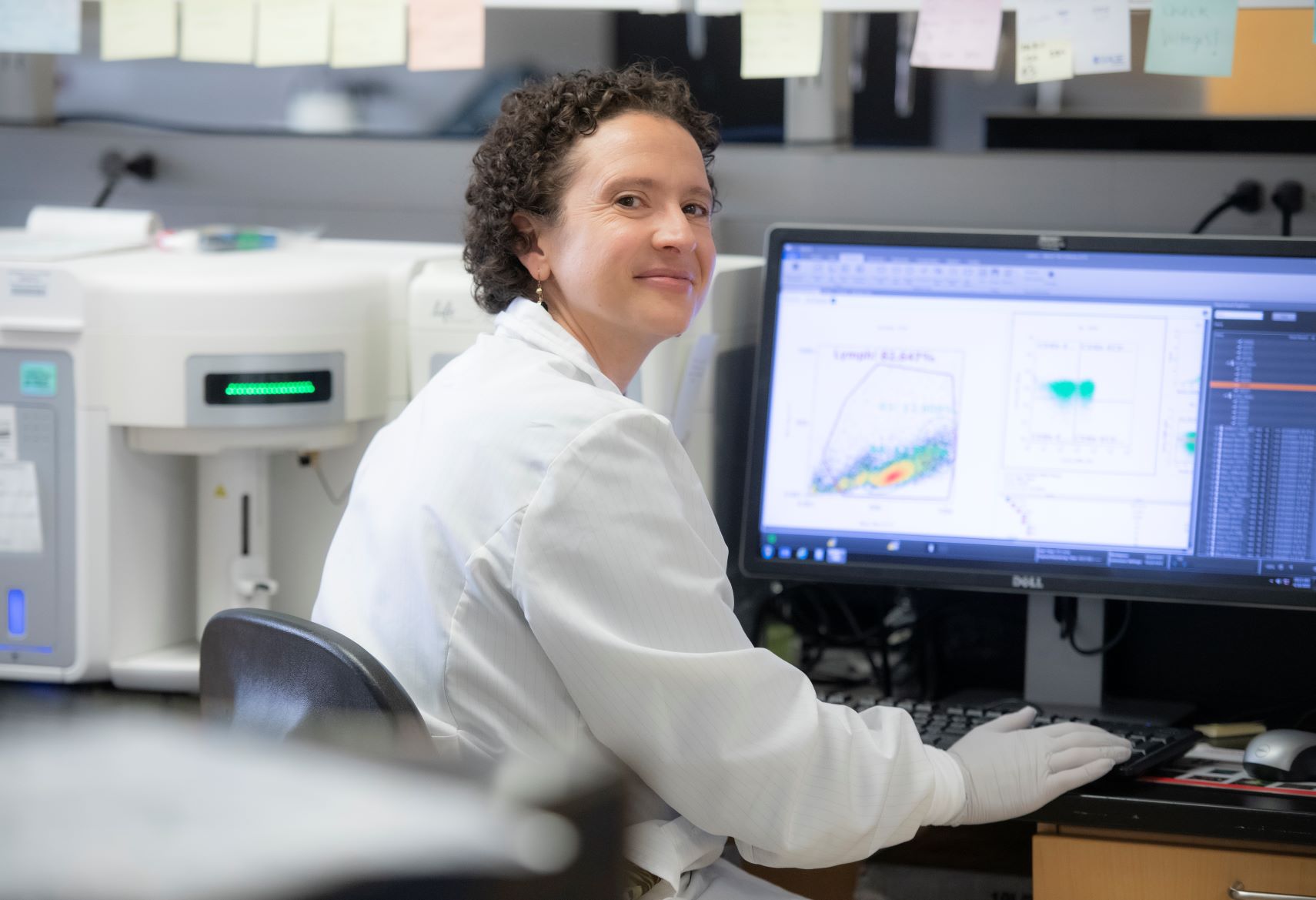
The University of Kentucky College of Medicine recently welcomed Ilhem Messaoudi, PhD, as the new chair of microbiology, immunology, and molecular genetics. She shares more about her work to better understand viruses and the wide range of factors affecting the immune system. She also shares how her research career led her to UK.
Q: Why did you pursue a career in research?
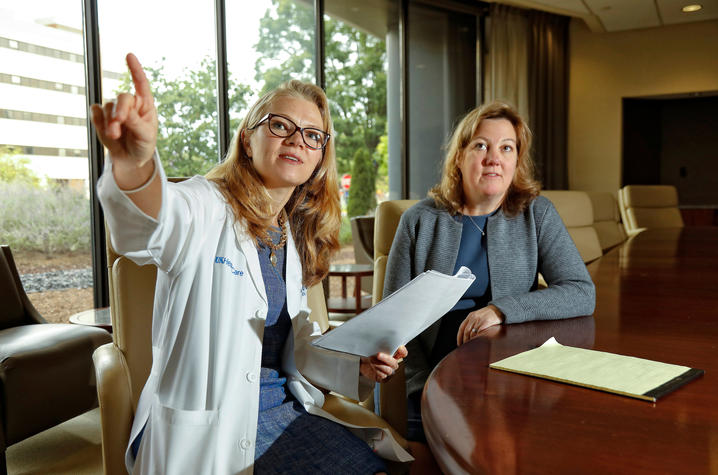
LEXINGTON, Ky. (Nov. 2, 2021) — A recent study shows that patients with non-small cell lung cancer reviewed by the University of Kentucky Markey Cancer Center’s Molecular Tumor Board experience improved outcomes, even if they reside in rural Appalachian Kentucky.
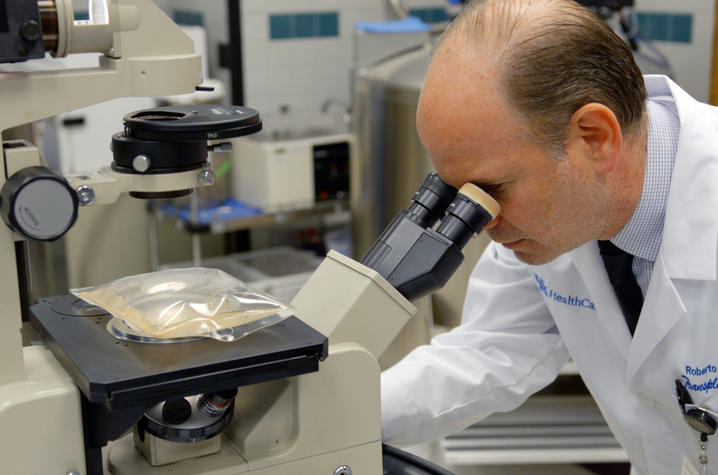
Roberto Gedaly, MD, and Francesc Marti, PhD, investigators in the University of Kentucky College of Medicine Department of Surgery, have noticed a year-over-year increase in liver transplants at UK HealthCare.
“Not only has our volume gone up significantly,” Dr. Gedaly said, “we’re actually going to break a record of liver transplant patients this year.”

LEXINGTON, Ky. (Oct. 21, 2021) — The University of Kentucky Markey Cancer Center has been awarded a transportation grant from the American Cancer Society. The funds will help alleviate the financial burden of transportation costs for cancer patients in Kentucky.

LEXINGTON, Ky. (Oct. 21, 2021) — A recent University of Kentucky College of Medicine study found that young adults from vulnerable communities are more likely to be exposed to tobacco marketing in their daily lives than are young adults outside these communities.
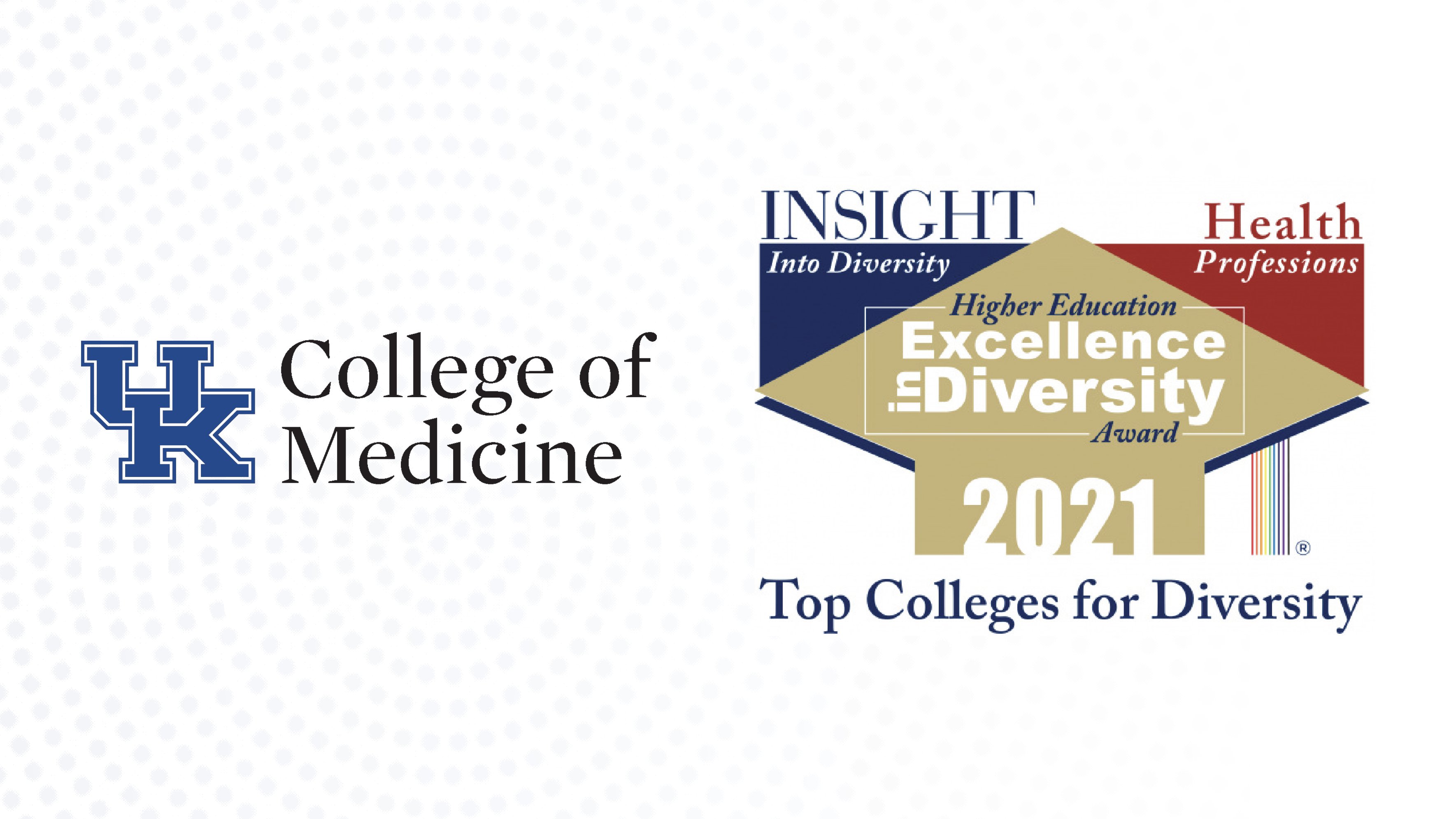
The University of Kentucky College of Medicine has received the 2021 Health Professions Higher Education Excellence in Diversity (HEED) Award from INSIGHT Into Diversity magazine, the oldest and largest diversity-focused publication in higher education.

LEXINGTON, Ky. (Oct. 8, 2021) — A recently released paper from the Department of Physiology and Sanders-Brown Center on Aging (SBCoA) at the University of Kentucky College of Medicine suggests that your genetics can influence your response to Alzheimer’s disease pathology.
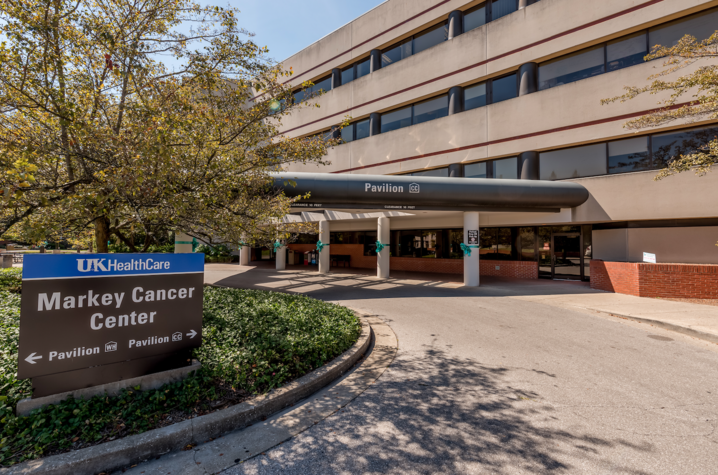
LEXINGTON, Ky. (Oct. 6, 2021) — A new study from the lab of University of Kentucky Markey Cancer Director Mark Evers, M.D., demonstrates the critical role of the hormone neurotensin in cell proliferation and stem cell function in the small intestine.

LEXINGTON, Ky. (Oct. 6, 2021) — Recent work from the University of Kentucky College of Medicine published in Cell Press discusses an essential signaling pathway that causes metabolic dysfunction including insulin resistance and obesity.
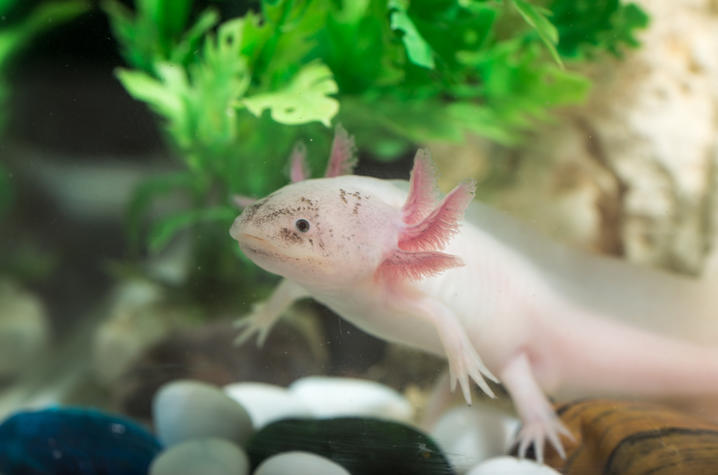
LEXINGTON, Ky. (Oct. 5, 2021) — University of Kentucky College of Medicine researchers were part of a new study that gives insight into how limb development evolved in vertebrates.